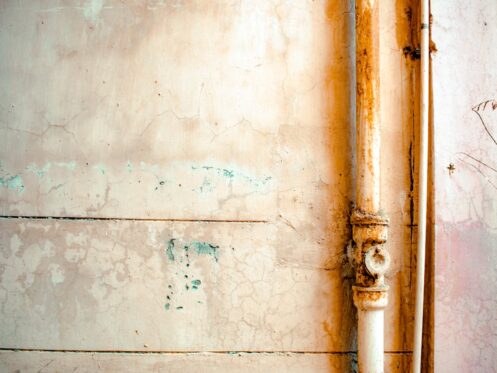Winter in Florida may not be as severe as in other parts of the country, but the occasional cold snap can still pose risks to your plumbing system. Even a brief period of freezing temperatures can cause significant damage if your pipes aren’t adequately protected. Understanding how to prevent pipe bursts during the winter months is crucial for avoiding costly repairs and water damage.
Despite Florida’s typically warm climate, homes in the area are not always built with extensive insulation. This can leave pipes vulnerable when temperatures drop. Taking proactive steps to safeguard your pipes can save you from the stress and expense of dealing with a burst pipe.
In this guide, you’ll find practical tips and strategies to keep your pipes in top condition throughout the winter. Ensuring that your plumbing system is prepared for sudden temperature changes can help you maintain a worry-free and well-protected home.
Understanding the Risk of Pipe Bursts in Florida
Even though Florida is known for its warm weather, temperatures can drop unexpectedly during the winter months. When temperatures dip, the water inside pipes can freeze and expand. This expansion puts pressure on the pipe walls, increasing the risk of them bursting.
Several factors can contribute to pipe bursts in Florida, even in a warmer climate. Homes in Florida often have plumbing pipes located in uninsulated areas like attics, garages, or exterior walls. These areas are more susceptible to freezing temperatures because they don’t have the added protection of indoor heating. Additionally, Florida homes may not be built with frost-resistant plumbing materials, making them more vulnerable when rare cold spells occur.
Understanding these risks is the first step in preventing pipe bursts. By knowing where your pipes are most exposed and the conditions that lead to freezing, you can take proactive measures to protect your plumbing system from unexpected frigid temperatures.
Insulating Pipes Properly
Properly insulating your pipes is crucial to prevent freezing and subsequent pipe bursts. The first step is gathering the right materials, which include pipe insulation foam, heat tape, and insulation blankets. These materials are designed to keep your pipes warm and safe from the cold.
To begin the insulation process, measure the length of the pipes you’ll be insulating and cut the insulation foam to fit. Wrap the foam around the pipes, ensuring it’s snug and secure. For added protection, you can use heat tape, which provides a consistent source of warmth to the pipes. Simply wrap the tape around the pipes before adding the foam insulation.
Certain areas in the home need special attention when it comes to insulating pipes. Exposed pipes in unheated spaces such as garages, attics, and crawl spaces are particularly at risk. Make sure to also check and insulate outdoor spigots and plumbing in external walls. By focusing on these vulnerable areas, you can effectively prevent your pipes from freezing when temperatures drop.
Simple Precautions to Take
Taking simple precautions can go a long way in preventing your pipes from freezing during cold snaps in Florida. One effective action is to let a small trickle of water run from faucets connected to exposed pipes. Flowing water is less likely to freeze, reducing the chances of a burst. Opening cabinet doors under sinks can also help warm air circulate around pipes, particularly on outside walls.
Maintaining a safe temperature for your pipes is crucial. Keep your thermostat set to the same temperature during both day and night, and consider using a programmable thermostat to avoid temperature dips. If you’re planning to be away from home during the winter, set your thermostat no lower than 55 degrees Fahrenheit to prevent pipes from freezing in your absence.
Regular maintenance checks are key in identifying potential issues before they become significant problems. Inspect your home for any leaks or cracks in the walls near pipes and seal them promptly. Check your insulation annually and replace it if it’s worn out or damaged. These steps will ensure your pipes remain in good condition and less susceptible to freezing.
What to Do if a Pipe Bursts
If a pipe bursts in your home despite taking precautions, knowing the immediate steps to take can minimize damage. The first action is to shut off the main water supply to prevent more water from flowing and causing further harm. Next, open the faucet nearest to the burst pipe to relieve pressure in the system and reduce flooding.
To minimize water damage while waiting for professional help, quickly move any furniture or valuables away from the affected area. Use towels, buckets, or a wet/dry vacuum to clean up as much standing water as possible. If water has seeped into your walls or flooring, fans and dehumidifiers can help dry out the area and prevent mold growth.
For temporary fixes until a plumber arrives, consider using pipe repair clamps or epoxy putty. These can provide a short-term solution to seal the burst and stop water leakage. However, these are not permanent fixes and don’t substitute for professional repairs. Contacting an experienced plumber as soon as possible ensures the issue gets resolved correctly.
Final Thoughts
Taking the necessary steps to prevent pipe bursts during the winter in Florida can save you from costly repairs and extensive water damage. Understanding the risks, properly insulating your pipes, adopting simple precautions, and knowing how to act in an emergency are all vital components of maintaining a safe plumbing system.
Routine checks and proactive measures are your best defenses against the devastation a burst pipe can cause. Ensure your home is prepared for any temperature extremes and stay vigilant with regular maintenance.
If you need expert help or emergency plumbing services, Legacy Plumbing Experts is here to assist. Call us today to protect your home and keep your plumbing system in top condition. Don’t let a minor issue turn into a major disaster—reach out to Legacy Plumbing Experts for all your plumbing needs!

